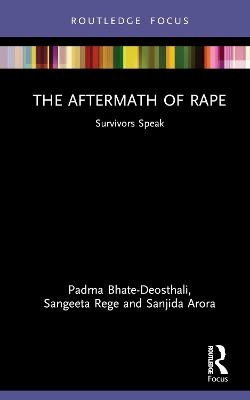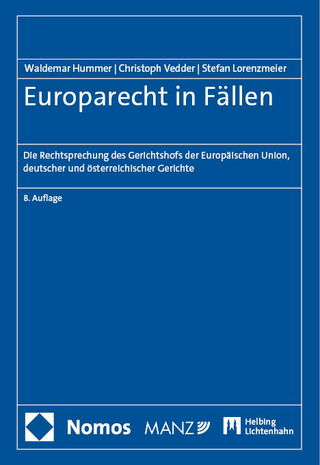
The Aftermath of Rape
Routledge India (Verlag)
978-1-032-15145-8 (ISBN)
Through personal narratives of survivors and their family members, the book examines critical gaps in the existing networks of criminal procedure, health, and rehabilitation for survivors of sexual violence and rape. Using qualitative research, it distills the narratives gathered through interviews with survivors and their family members to understand their experiences and offers. The book contributes to the corpus of literature on different forms of violence against women in India with an emphasis on understanding the effectiveness of institutions, both formal and informal, in responding to sexual violence, and offering suggestions for changes in the health and support systems available to them. It documents post-incident interactions of survivors with family, community, the police, courts, lawyers, and hospitals and highlights the impact of rape on physical and mental health, work, relationships, education and housing for survivors and their families.
This book will be of interest to those engaged in providing support to survivors of sexual violence as well as students and researchers of social work and social policy, health and social care, law, gender studies, human rights and civil liberties, gender and sexuality, social welfare, and mental health.
Padma Bhate-Deosthali has extensive experience in research, training, and policy advocacy in the areas of gender-based violence, gender in medical education, health policy research, regulation of the private health sector, and women and work, with a focus on health and human rights. She led CEHAT as its Director for 11 years. She was a member of the Steering Group of the GDG-WHO for developing policy and clinical practice guidelines for responding to violence against women and also member of the National Committee under the MoHFW for drafting the ‘Guidelines and Protocols for medico-legal care for victims/survivors of sexual violence’ in 2014. She coordinated the setting up of Dilaasa, a public hospital-based crisis centre on domestic violence in Mumbai. Sangeeta Rege has a Master’s degree in social work. She has 18 years of experience in engaging the public health sector on gender-based violence and, more recently, on integrating gender concerns in medical education. She is presently the Coordinator of the Centre for Enquiry into Health and Allied Themes (CEHAT). Sangeeta is trained in social science research, advocacy, training and counselling, and has led CEHAT’s legal interventions to facilitate gender-sensitive medico-legal care for survivors of sexual violence in 2013. She has led the upscaling of the Dilaasa hospital-based crisis centres in different states of India and is committed to generating evidence to strengthen the role of health systems in responding to VAW. She has co-edited a a book for Routledge- Understanding VAW/C- Understanding responses and approaches in the Indian health sector (2020) Sanjida Arora has been associated with CEHAT for the past 7 years. She is a trained dentist and holds a degree of Master in Public Health from Tata Institute of Social Science. She was co-led an implementation research project in collaboration with the WHO to test training approaches for the roll out of the WHO Clinical and policy guidelines, 2013 in two medical colleges of Maharashtra. She was also the principal investigator on a research project on assessing the effectiveness of counselling intervention in antenatal departments of public hospitals for women facing domestic violence. She has been leading the capacity building of several civil society organizations in data management and analysis of counseling service records in a rigorous and ethical manner that protects the confidentiality and anonymity of survivors.
Acknowledgements. Introduction 1. Contextualising the survivors’ narratives 2. "People feel we should always remain sad, not eat well or live well as such an incident has occurred" - Ria’s mother 3. "Do whatever you want to do, as a father I will not take back the case"- Sara’s father 4. "We had to choose between education and well-being of our daughter versus appeal in the higher court" - Sana’s father 5. Every time there was a new lawyer, I was called again, and I was asked the same thing again and again"- Bindu’s mother 6. "Who nirdosh hai to kya hum doshi hain?"- Rani 7. "We were forced to leave the city due to continued abuse. Is this fair on my kids?" – Anu 8. "They have mentioned on record that physical and mental cruelty by husband has happened, but no mention of sexual cruelty- Neeta 9. Way forward. Index.
| Erscheinungsdatum | 01.02.2022 |
|---|---|
| Zusatzinfo | 1 Halftones, black and white; 1 Illustrations, black and white |
| Verlagsort | London |
| Sprache | englisch |
| Maße | 138 x 216 mm |
| Gewicht | 217 g |
| Themenwelt | Sachbuch/Ratgeber ► Gesundheit / Leben / Psychologie |
| Recht / Steuern ► Allgemeines / Lexika | |
| Recht / Steuern ► EU / Internationales Recht | |
| Recht / Steuern ► Öffentliches Recht ► Völkerrecht | |
| Sozialwissenschaften ► Pädagogik ► Sozialpädagogik | |
| Sozialwissenschaften ► Soziologie ► Gender Studies | |
| Sozialwissenschaften ► Soziologie ► Spezielle Soziologien | |
| ISBN-10 | 1-032-15145-5 / 1032151455 |
| ISBN-13 | 978-1-032-15145-8 / 9781032151458 |
| Zustand | Neuware |
| Informationen gemäß Produktsicherheitsverordnung (GPSR) | |
| Haben Sie eine Frage zum Produkt? |
aus dem Bereich


